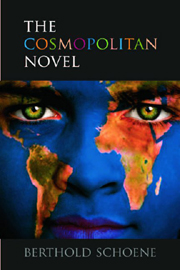1 - Families against the World: Ian McEwan
from I - IMAGINING COSMOPOLITICS
Published online by Cambridge University Press: 12 September 2012
Summary
Written in response to the fall of the Berlin Wall and the attacks on the World Trade Center in New York respectively, Ian McEwan's Black Dogs (1992) and Saturday (2005) both aim to capture the sensibility of a newly emergent Anglo-British contemporaneity. Read in combination, they disclose the bipolar bracketing of the 1990s by one joyous and one profoundly traumatic world event, a bracketing compounded by Britain's sandwiched position, both culturally and politically, between Europe and the USA. Transporting us from middle-English Wiltshire to contemporary and historical Germany, Poland and France, Black Dogs sets out to explore what is fundamentally a European sense of belonging. Yet notably it remains preoccupied with the continent's dark mid-century past rather than its post-1989 moment of euphoric reunification. Fashioned ultimately, after its main protagonist's name, into a jeremiad of political resignation, the novel accentuates the individual's as well as the family's vulnerability and helplessness in the face of world events.
Saturday, by contrast, follows the life of successful London neurosurgeon Henry Perowne on 15 February 2003, a day of worldwide rallying against the impending Iraq War. The novel culminates in the triumph of individual and familial agency over criminally deranged adversity. Its central conflict between the Perownes and petty gangster Baxter, a sufferer from Huntington's Chorea, mirrors the conflict between US America's Coalition of the Willing and the late Iraqi dictator Saddam Hussein.
- Type
- Chapter
- Information
- The Cosmopolitan Novel , pp. 37 - 65Publisher: Edinburgh University PressPrint publication year: 2009



